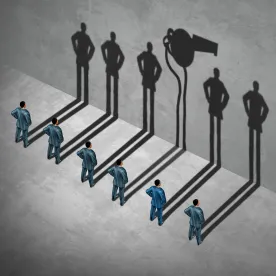Yes – placing a whistleblower under surveillance can be actionable retaliation. The elements of a retaliation claim are not uniform, but generally require the whistleblower to prove the following:
-
She engaged in protected activity;
-
Her employer knew about the protected activity;
-
Her employer took an adverse action against her; and
-
The protected activity in some way caused the adverse action.
The Supreme Court has held that a materially adverse action is one that would “dissuade[] a reasonable worker from” engaging in protected activity and exercising her legal rights. Burlington Northern & Santa Fe Ry. Co. v. White, 548 U.S. 53, 68 (2006). As placing an employee under surveillance would dissuade a reasonable person from exercising her legal rights, such surveillance can be actionable. See, e.g., Hubbell v. FedEx SmartPost, Inc., 933 F.3d 558, 570 (6th Cir. 2019)
In Kazcmarek v. County of Lackawanna Transit System, the court held that surveillance of an employee who elected to take advantage of her FMLA rights could prove sufficient in and of itself to establish an adverse employment action. 2017 WL 5499160 at 3 (M.D. Pa. 2017). Citing four other cases that came to the same conclusion, the court concluded that “. . . secretive surveillance of an employee may constitute and adverse employment action sufficient to support a claim of retaliation.” Id. In addition, the court noted: “As any reasonable person may suspect, if an employer hires private investigators to surveil an employee on FMLA leave,” employees could be dissuaded from exercising their rights to benefit from the FMLA to avoid being placed under surveillance. Id.
In Cichonke v. Bristol Township, the court in denying summary judgment recognized that surveillance could present evidence of antagonism so that “. . . it is possible that a reasonable jury could find that such conduct was an adverse employment action.” 2015 WL 8764744 at 19 (E.D. Pa. 2015).
Similarly, the Third Circuit in Anderson v. Davila held that surveillance initiated after the plaintiff exercised his legal rights could be retaliation. 125 F.3d 148, 163 (3d Cir. 1997). In assessing whether visual surveillance and photographs taken of the plaintiff and his attorney was retaliation, the court held that where surveillance was initiated as a direct result of the plaintiff attempting to exercise his rights, he would be able to prevail in proving retaliation. Retaliation was especially likely in this case, the court held, since the defendant “effectively abandoned its attempt to come up with a credible reason for investigating or following” the plaintiff. Id.
By placing an employee or ex-employee under surveillance after that employee has engaged in protected activity, an employer dissuades other employees from exercising their legal rights. In the case of a whistleblower who discloses misconduct, placing that person under surveillance after she blows the whistle would likely dissuade other employees from speaking up for fear of being placed under surveillance. Surveillance infringes on an employee’s privacy and pries into her private life. An employer who seeks to retaliate may place an employee under surveillance in an attempt to find a pretextual reason for discipline or termination. See Hairston v. Gainesville Sun Publ’g Co., 9 F.3d 913, 921 (11th Cir. 1993) (quoting Schlei & Grossman, Employment Discrimination Law, 554 (2d ed. 1983))




 />i
/>i
